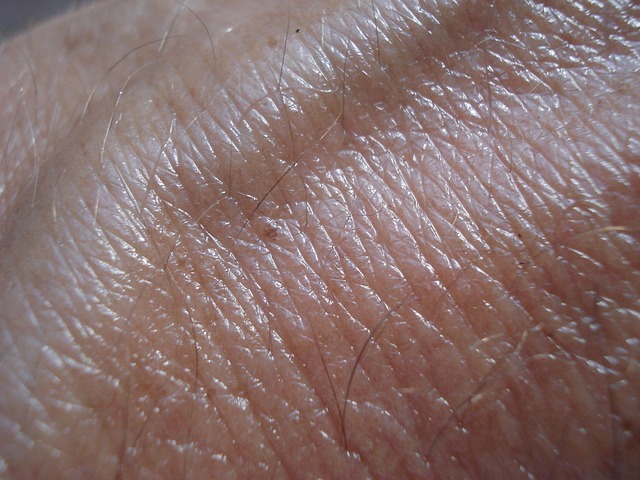Understanding Manchester Tag Removal involves knowing causes (friction, trauma, conditions) and types (acral, pigmented). Treatments range from at-home remedies to professional options like cryotherapy, laser, and surgery. Post-removal care includes cleanliness, protection, and monitoring for recurrence. SEO keyword: Manchester Tag Removal.
Looking for effective Manchester tag removal methods? Skin tags, those small, soft bumps that appear on the skin, are common but often unwanted. This comprehensive guide explores various ways to get rid of skin tags in Manchester, from non-surgical options and at-home treatments to professional procedures like lasers and cold surgery. We also provide post-removal care strategies to prevent recurrence.
- Understanding Skin Tags: Causes and Types in Manchester
- Non-Surgical Removal Options Explored
- At-Home Treatments and DIY Remedy Tips
- Professional Tag Elimination: Lasers and Cold Surgery
- Preventing Recurrence: Post-Removal Care Strategies
Understanding Skin Tags: Causes and Types in Manchester

Skin tags, also known as acrochordons, are small, soft skin growths that typically appear in areas where skin rubs against itself, such as the neck, armpits, and groin. They are usually harmless and often go unnoticed, but some individuals may find them cosmetically disturbing. In Manchester, understanding the causes and types of skin tags is an essential first step towards effective Manchester Tag Removal.
The primary cause of skin tags is friction and trauma to the skin. This can result from clothing irritation, excessive sweating, or even just frequent rubbing against a surface. Certain factors, like pregnancy, obesity, diabetes, or hormonal changes, can also increase the likelihood of developing them. There are various types, including acral tags, which appear on non-sun-exposed skin, and pigmented tags, characterized by dark coloring. Knowing these nuances is crucial for effective removal strategies tailored to individual cases.
Non-Surgical Removal Options Explored

When considering Manchester tag removal, non-surgical options offer a range of safe and effective treatments. One popular method is using liquid nitrogen, also known as cryotherapy, to freeze and destroy skin tags. This quick procedure is often painful-free and can be done in a doctor’s office. Another less invasive option is surgical excision, where a dermatologist uses a small scalpel or laser to cut out the tag, followed by bandaging for minimal downtime.
For those seeking more natural remedies, there are over-the-counter options available. These include tag removers containing chemicals like salicylic acid or potassium hydroxide, which work by drying out and removing the skin tag. While these methods might take longer to show results, they offer a cost-effective alternative for minor skin concerns.
At-Home Treatments and DIY Remedy Tips

Many people opt for at-home treatments as a first step in trying to get rid of skin tags. This is often due to cost considerations and the convenience of avoiding clinical visits. Some common home remedies involve using over-the-counter acids like salicylic or lactic acid, which can help exfoliate the tag away. Alternatively, applying a mixture of apple cider vinegar and castor oil has shown promise in reducing the size of skin tags over time.
DIY approaches to Manchester Tag Removal also include freezing the tags with liquid nitrogen (cryotherapy), a method usually performed by dermatologists but can be done at home under professional guidance. Additionally, using duct tape to cover and gently pull on the tag is another popular homemade technique, though results may vary significantly among individuals. It’s crucial to remember that while these methods might work for some, they don’t guarantee permanent removal and should be approached with caution to avoid scarring or other complications.
Professional Tag Elimination: Lasers and Cold Surgery

Professional tag elimination methods, such as laser treatments and cold surgery, offer effective solutions for those seeking permanent removal in Manchester. Lasers target the blood vessels within the skin tags, causing them to fade away over time. This method is precise, minimizing damage to surrounding skin. Cold surgery, or cryosurgery, involves freezing the skin tags with liquid nitrogen, leading to their eventual disappearance. Both procedures are commonly performed by dermatologists and specialized clinics, ensuring expert care and safe removal.
These professional treatments provide permanent solutions, making them a popular choice for folks seeking to eliminate unsightly skin tags once and for all. The advanced techniques used minimize scarring and offer fast recovery times, allowing you to dance freely without concerns.
Preventing Recurrence: Post-Removal Care Strategies

After successfully removing skin tags through methods like freezing, cutting, or laser treatment in Manchester tag removal clinics, proper post-removal care is crucial to prevent recurrence. It involves keeping the treated area clean and dry, avoiding strenuous activities that could irritate the skin, and using soft, gentle products for cleansing. Applying a light bandage for a few days can also protect the spot from further exposure and help in the healing process.
Additionally, it’s important to be mindful of any scabs that form as the skin heals; picking at them or disturbing them could lead to infection. Keeping the area unstressed and undisturbed is key. If new tags develop, seeking professional advice promptly can prevent future discomfort and ensure effective Manchester tag removal.
In conclusion, removing skin tags in Manchester offers various effective options. From non-surgical procedures like freezing or cutting to at-home treatments and professional laser or cold surgery, each method has its merits. Understanding the causes and types of these benign growths is essential for choosing the best approach. Additionally, proper post-removal care can significantly reduce recurrence chances. Whether you opt for a DIY solution or seek expert Manchester tag removal services, knowing your options empowers you to make an informed decision tailored to your needs.
